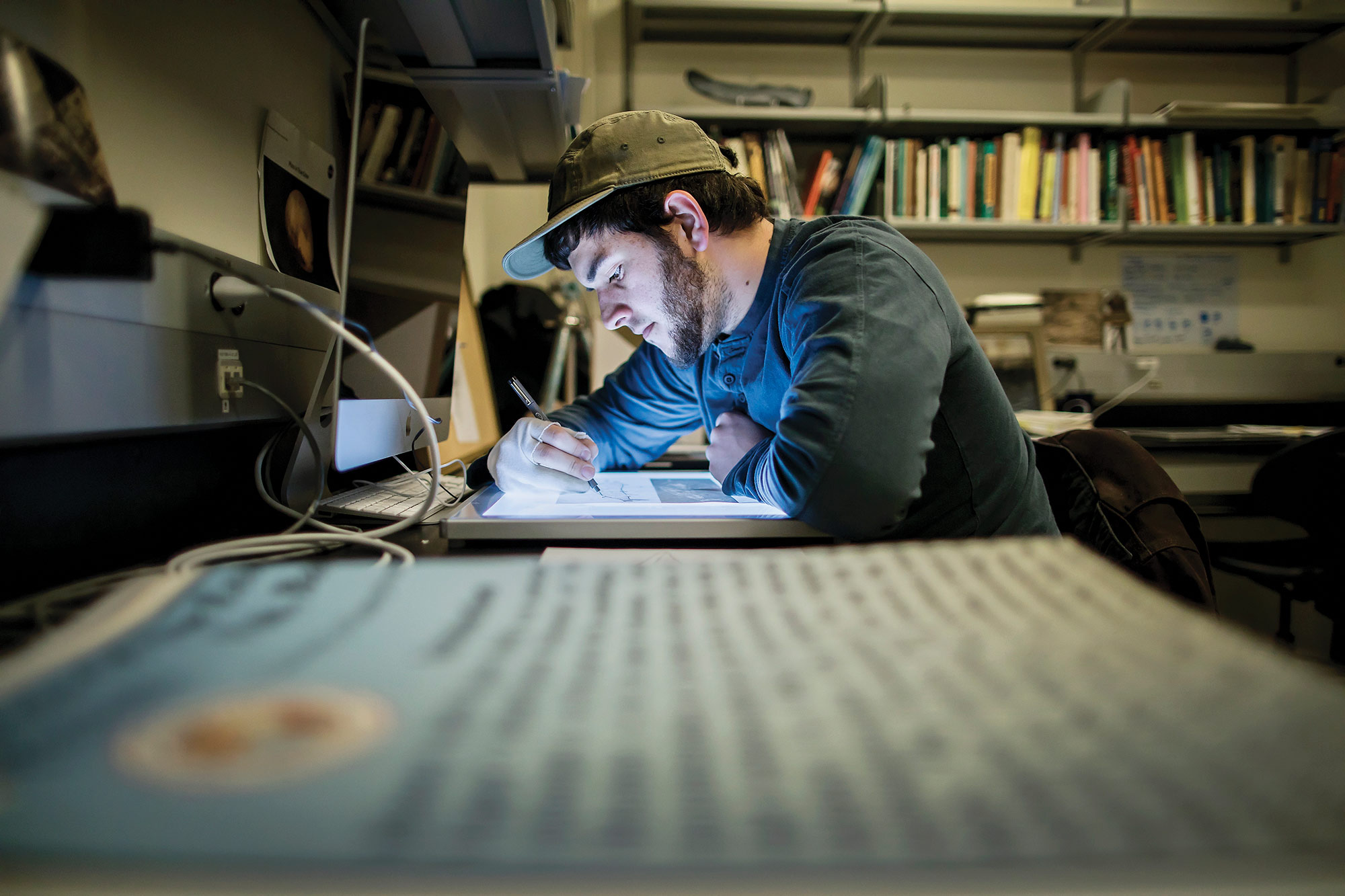
Jack Stack, C'19
In the only nation in the world to fund unlimited IVF, Alisa Feldman, C’18, investigates how providers communicate with patients.
Christopher D’Urso, C’18, educates consumers about scams.
Jimin Yoon, C’18, discovers an affinity for science.
For his English honors thesis, Nicholas Escobar, C'18, combined his love of literature and music.
Kristen Ierardi, C’18, examines a period of bold feminist activism at Penn.
Sebastian Gonzalez, C’20, is a campus leader for first-generation students, a physics and astronomy major, and the principal tubist for the Penn Symphony Orchestra.
Kate Dorsch, Ph.D. candidate in History and Sociology of Science, discusses her research on UFO sightings in Cold War America and how scientific knowledge is created and communicated to the public.
Jana Korn, C'18, surveys female students on sexual violence on public transportation.
Criminology master's student Sarah Jewett uses statistical and empirical analysis and computer programming to study war crimes.
Zachary Sheldon, C’19, intended to pursue a career in clinical medicine until a little bird told him he might be better suited for neuroscience research. Last year, Sheldon began studying zebra finches under the supervision of Marc Schmidt, Professor of Biology and Co-Director of the Biological Basis for Behavior program. The project combines Sheldon’s interest in neuroscience with the coding skills he acquired minoring in computer science.
Ph.D. candidate Hajer Al-Faham explores Islamophobia’s effects on Muslim American politics.
Bonus content section for the Spring/Summer 2017 edition of the OMNIA magazine.
This led Phoebe Ho, a Ph.D. candidate in sociology, and Hua-Yu Sebastian Cherng, GR’14, to co-author a study in The Sociological Quarterly that bridges these largely disparate bodies of literature.
Between 1990 and 2016, men won 60 percent of three major U.S. awards—the National Book Award, the Pulitzer Prize, and the National Book Critics Circle award. English major Savannah Lambert, C’18, is using digital technology to learn more about why books by and about women are less likely to win.
For two years, Ana Alonso, C’18, a double major in linguistics and environmental science, has worked with tribes in the Flathead Nation in Montana to help preserve and transmit Traditional Ecological Knowledge (TEK).
Students taking Environmental Humanities: Theory, Method, and Practice enter Bartram's Garden, located on Philadelphia's Schuylkill River. The graduate seminar, taught by Bethany Wiggin, Associate Professor of Germanic Languages and Literatures and Founding Director of the Penn Program in Environmental Humanities (PPEH), introduces students to field research. Bartram’s Garden partners with PPEH for research and ongoing public environmental humanities projects.
OMNIA visits a history course that covers challenging moments in American history.